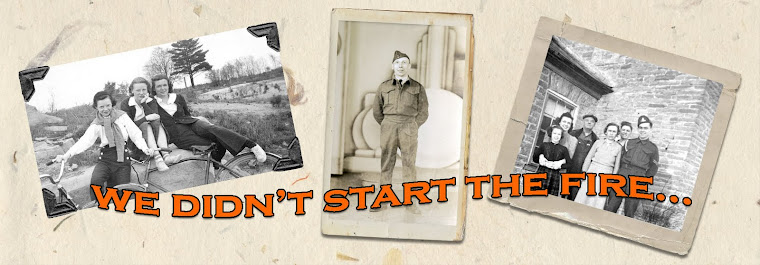
I wouldn't call myself a Billy Joel fan. I enjoy a late night rendition of Piano Man and I know most of the words to For the Longest Time, but that's about it. A few years ago, I came across Joel's 1989 song, We Didn't Start the Fire. Admittedly, I didn't think much of it. I mean, if you've heard it, you'll know it's just a rambling list of names and historical events that are in some way linked to American history and/or culture. I'm not particularly interested in American history, I am a Canadian"ist" through and through.
It wasn't until I was trying to think of a catchy name for my public history blog that I actually reconsidered Joel's song - particularly the chorus: "We didn't start the fire/it was always burning since the world's been turning/We didn't start the fire/no we didn't light it/but we tried to fight it..." (ok, it sounds kind of lame without the music). For me, the "fire" Joel is referring to is history as a whole - the people/places/events of our past that continue to affect us today. We, the collective we, did not make the decisions of the past but it is necessary for us to interpret them and to study them (if only for interest's sake). As public historians, it is our job to present the various "fires" to the public so they are aware of our history as a nation, as a people. After all, it was the philosopher George Santayana who said, "A country without a memory is a country of madmen." Anyone can rattle off a list of names of significant people and events but it takes more to actually understand what happened and why these things are significant.

1 comment:
Understanding the significance of various events takes some skill, as we know by now. On the presentation side of things, being able to impart that understanding, especially through 'unusual' media like music as opposed to books or lectures, takes quite a bit of work on top of that. I've always respected anyone who has a bit of bard in them.
I've found Billy Joel interesting because of his ability to do that; I rediscovered him a couple of years ago when I was given a copy of "Leningrad" and told to give it a listen. I've since seen it send more than one person scurrying off to learn a bit more about life during the Cold War, which I only really remember the tail end of.
One of these days I want to try to pull together a pile of music that could be used to teach/learn about historical events (or, more likely, find one already assembled someplace).
Post a Comment